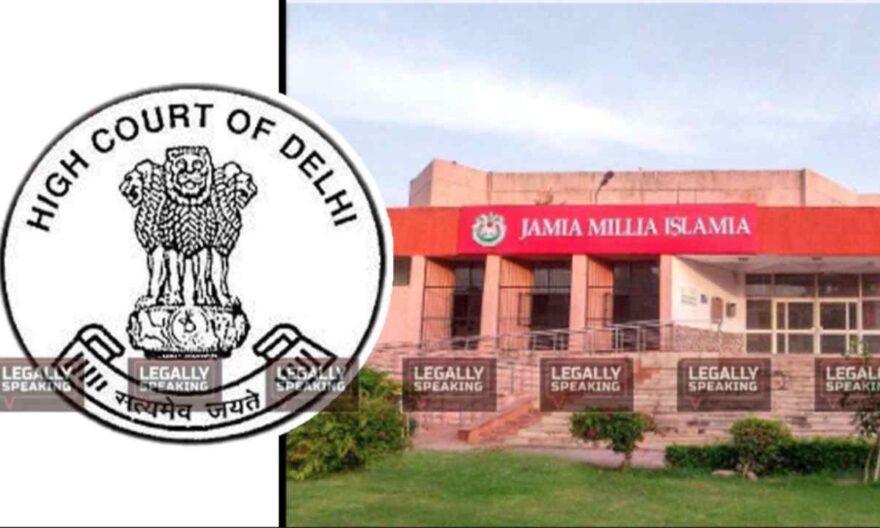
The Delhi High Court has recently issued a notice to Jamia Millia Islamia and the Union Government in a petition challenging the recruitment notification for the appointment of non-teaching staff at the University and raises concerns about the lack of reservation for SC & ST categories.
Noting that the matter warrants careful deliberation, a single-judge Justice Vikas Mahajan has issued a notice to the respondents and instructed them to submit a counter affidavit within a period of three weeks.
“In the meanwhile, the Respondent University is directed to keep one post vacant for the petitioners in each category [i.e. – (i) Assistant Registrar, (ii) Section Officer and, (iii) LDC], under which they have applied,” the bench stated.
Ram Niwas Singh and several others belonging to the SC & ST categories have filed a petition seeking the annulment of the 2014 resolution passed by the Executive Council of Jamia Millia Islamia University. The resolution asserted that as a Minority Institution, Jamia Millia Islamia is exempted from adhering to the Reservation Policy of the Government of India, as provided under Article 30(1) of the Constitution.
The petition also seeks to invalidate the current recruitment advertisement for non-teaching positions, alleging that it violates the provisions of Section 7 of the Jamia Act.
Senior Advocate Arun Bhardwaj, representing the petitioner, argued that the University failed to extend reservation to SC & ST candidates in the advertisement for 241 non-teaching staff positions.
“Ordinance 6 (VI) (Academic) which provides for “Reservation of seats and other special provision for admission” based on religious belief has been made applicable also to the teaching and non-teaching positions in terms of Resolution No. EC-2014 (II): Reso.-06,” the senior counsel submitted.
Furthermore, it was contended that the 2014 resolution is in contradiction to the constitutional framework of reservation and also violates the statutory framework outlined in Section 7 of the Jamia Millia Islamia Act, 1988. According to Section 7, the University is required to be accessible to all classes, castes, and creeds, and it is prohibited for the University to impose any religious test for admission or employment.
The bench, while scheduling the next hearing for July 7, clarified that the recruitment process has not been halted at this stage.




